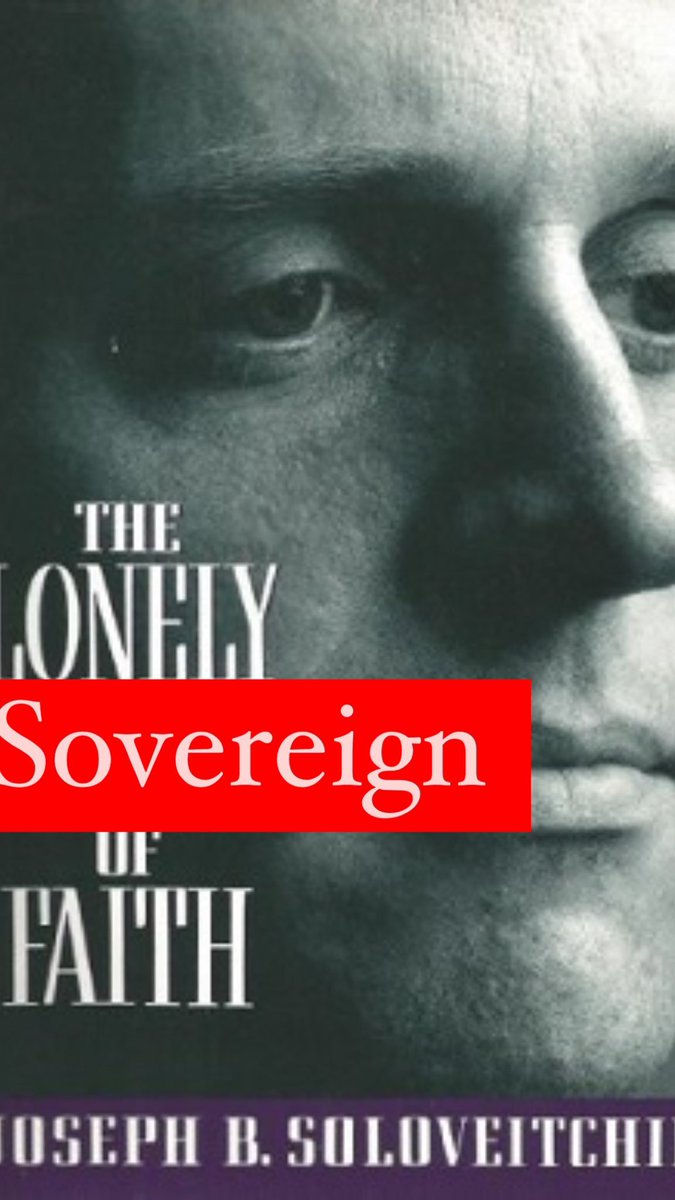
PhD Candidate @HebrewU | Modern Jewish (Political) Theology | Translator, Editor | Theorizing from the ruins of Logos
How to get URL link on X (Twitter) App


https://twitter.com/levidmorrow/status/1689992733983756288
 The chapter has three parts, following Rav Shagar's discussions of 1. Rambam and R. Yehuda Halevi, 2. Rebbe Nahman's stories, and 3. sci fi and messianism.
The chapter has three parts, following Rav Shagar's discussions of 1. Rambam and R. Yehuda Halevi, 2. Rebbe Nahman's stories, and 3. sci fi and messianism.

 The book’s basic idea is to take seriously how the pioneers of the second and third Aliyah talked about the land, the desire baked into every syllable
The book’s basic idea is to take seriously how the pioneers of the second and third Aliyah talked about the land, the desire baked into every syllable




 Book can be purchased from the yeshiva here (no idea if they ship to the US):
Book can be purchased from the yeshiva here (no idea if they ship to the US):
https://twitter.com/levidmorrow/status/1622348464544780288The second is often conceived of as independent of the first, but Yelle insists on their connection. Rejection of the system is often just rejection in favor of a different system, or eventually creates its own new system.

 Political theology’s bread and butter is the “political-theological analogy”: “This political thing is really just theology!” and vice versa. Rav Soloveitchik actually shares this intuition.
Political theology’s bread and butter is the “political-theological analogy”: “This political thing is really just theology!” and vice versa. Rav Soloveitchik actually shares this intuition. 




 Rav Soloveitchik, attempting to determine the “metaphysics of Purim,” lands on human vulnerability as both a critical element of human existence and as the defining element of the Purim story.
Rav Soloveitchik, attempting to determine the “metaphysics of Purim,” lands on human vulnerability as both a critical element of human existence and as the defining element of the Purim story.



 “Thou shalt not kill,” he points out, can be a way of protecting the collective. Any individual lopped off the collective hurts the collective, so the imperative maintains its health and integrity. However, because the imperative serves the aims of the collective,
“Thou shalt not kill,” he points out, can be a way of protecting the collective. Any individual lopped off the collective hurts the collective, so the imperative maintains its health and integrity. However, because the imperative serves the aims of the collective, 

 Rav Soloveitchik broadly sees human sovereignty as a necessarily evil, granted conditional legitimacy under certain specifications. But I want to talk about the moment before that, when he discusses why human sovereignty is fundamentally illegitimate.
Rav Soloveitchik broadly sees human sovereignty as a necessarily evil, granted conditional legitimacy under certain specifications. But I want to talk about the moment before that, when he discusses why human sovereignty is fundamentally illegitimate. 

 "The Emergence of Ethical Man" (EEM) doesn't depict a "State of Nature," but it does present a "religious anthropology" (xii), and this anthropology eventually gives rise to what he calls the "theo-political" society of the Mosaic covenant.
"The Emergence of Ethical Man" (EEM) doesn't depict a "State of Nature," but it does present a "religious anthropology" (xii), and this anthropology eventually gives rise to what he calls the "theo-political" society of the Mosaic covenant. 

 In a fascinating 2014 article, Dr. Assaf Tamari explores the role of consciousness in the political theology of Rav Yitzchak Ginsburgh.
In a fascinating 2014 article, Dr. Assaf Tamari explores the role of consciousness in the political theology of Rav Yitzchak Ginsburgh.



 Adam Kotsko usefully expands Carl Schmitt's definition of political theology thusly: Political theology deals, writ large, with analogies between the problem of evil and political legitimacy—theological and political *justification*—in a given culture.
Adam Kotsko usefully expands Carl Schmitt's definition of political theology thusly: Political theology deals, writ large, with analogies between the problem of evil and political legitimacy—theological and political *justification*—in a given culture.https://twitter.com/levidmorrow/status/1328746171704217601?s=20